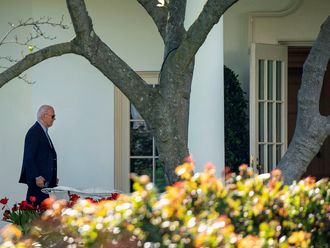G7 nations to agree joint fight against cyber attacks
Finance chiefs from the Group of Seven rich countries will commit on Saturday to join forces to fight the growing threat of international cyber attacks, according to a draft statement of a meeting they are holding in Italy. “We recognise that cyber incidents represent a growing threat for our economies and that appropriate economy-wide policy responses are needed,” the draft statement, said. It called for common shared practices to spot quickly any vulnerabilities in the world’s financial system and stressed the importance of effective measures to assess cyber security among individual financial firms and at sector level. The draft will be reviewed before publication later on Saturday by the G7 finance ministers and central bankers who are discussing issues facing the world economy at a two-day meeting in Bari, Italy.
Europol says cyberattack is of ‘unprecedented level’
The wave of cyberattacks wreaking havoc cross the globe is “at an unprecedented level”, European Union’s law enforcement agency Europol said Saturday. The attacks will “require a complex international investigation to identify the culprits”, the agency, which is working with countries and companies hit by the attacks, said in a statement. Europol teams are seeking to “mitigate the threat and assist victims”, it also said.
Trump signs order on cybersecurity that holds agency heads accountable for network attacks
President Donald Trump has signed an executive order on cybersecurity that makes clear that agency heads will be held accountable for protecting their networks, and calls on government and industry to reduce the threat from automated attacks on the Internet. Picking up on themes advanced by the Obama administration, Trump’s order also requires agency heads to use Commerce Department guidelines to manage risk to their systems. It commissions reports to assess the country’s ability to withstand an attack on the electric grid and to spell out the strategic options for deterring adversaries in cyberspace. “We’ve seen increasing attacks from allies, adversaries, primarily nation-states, but also non-nation-state actors, and sitting by and doing nothing is no longer an option,” said Thomas Bossert, Trump’s homeland security adviser, at a White House briefing. He said the order was not, however, prompted by Russia’s targeting of electoral systems last year. In fact, the order is silent on addressing the security of electoral systems or cyber-enabled operations to influence elections, which became a significant area of concern during last year’s presidential campaign. The Department of Homeland Security in January declared election systems “critical infrastructure.”
Cybercrime fears drive up demand for anti-hacker insurance
For companies and organisations, an attack by hackers can inflict financial losses, corporate embarrassment and legal action. For insurers jumping into the brave new world of cybercrime insurance, it’s free marketing for what could be a $10 billion opportunity. Insurers see coverage against hackers as one of their most promising markets, estimating that premiums will triple over the next four years. “We are optimistic that it can develop into Allianz’s and the industry’s next blockbuster,” Hartmut Mai, chief underwriting officer for corporate lines at Allianz’s industrial insurance arm, said in an interview. “Cyber insurance is our key growth area at the moment.” A new breed of coverage couldn’t come at a better time for insurers, which are struggling to expand in most of their established markets amid slow economic growth and low catastrophe claims that weigh on prices. Insurance premium income stagnated in Europe last year and is expected to grow 1.3 percent next year, according to reinsurer Munich Re. The company estimates that cyber insurance premiums could rise to between $8.5 billion (Dh31.2 billion) and $10 billion by 2020 from about $3.4 billion currently.












